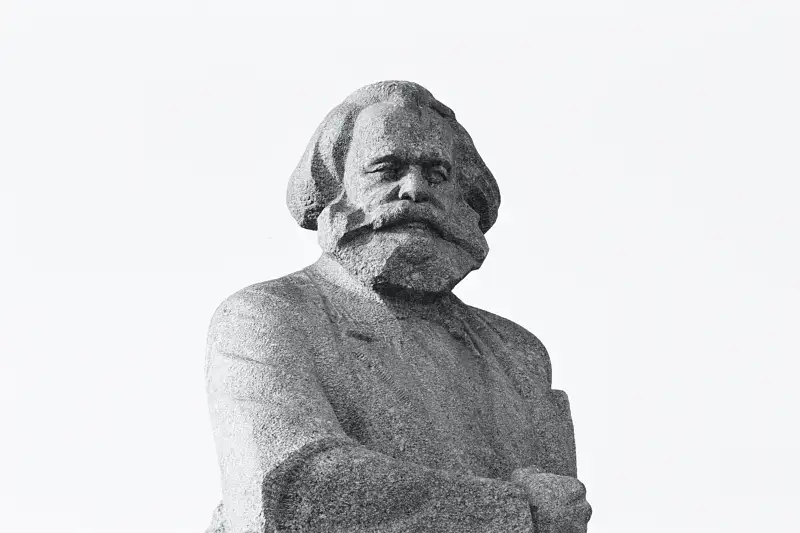Table of Contents
- Understanding the Marxist Perspective
- The Role of Ideology in the Marxist View of Media
- Media Ownership and Control
- The Media as a Tool of Hegemony
- The Role of Media in Consumer Culture
- The Media’s Role in Reinforcing Stereotypes and Inequalities
- Criticisms of the Marxist View of Media
- Conclusion: The Relevance of the Marxist View in Modern Media
In the study of media within sociology, various theories and perspectives explore how media influences society and shapes public consciousness. The Marxist perspective offers a critical viewpoint, highlighting how media serves as a tool for social control, reinforcing class structures and perpetuating inequality. This article delves into the Marxist view of the media, examining its origins, fundamental principles, and implications for contemporary society.
Understanding the Marxist Perspective
Marxism, rooted in the ideas of Karl Marx and Friedrich Engels, is a theoretical framework that analyzes social relations, power structures, and economic systems. Central to Marxist thought is the concept of class struggle, which suggests that society is divided into distinct social classes with conflicting interests. According to Marxist theory, the ruling class, or bourgeoisie, owns and controls the means of production, while the working class, or proletariat, relies on selling its labor to survive. This economic arrangement creates a hierarchy of power and privilege that the ruling class actively maintains.
Within the Marxist perspective, media is seen as one of the key instruments through which the ruling class exerts its influence. The media functions not merely as a source of information but as an ideological apparatus that shapes public perception, reinforces dominant ideologies, and manipulates mass consciousness in favor of capitalist interests.
The Role of Ideology in the Marxist View of Media
Ideology plays a central role in the Marxist understanding of media. In Marxist terms, ideology refers to a set of beliefs and values that serve the interests of the ruling class by justifying and normalizing social inequalities. The media, from this perspective, acts as a powerful tool for disseminating ruling class ideology, subtly influencing the public to accept existing social and economic arrangements.
Ideological State Apparatus
One of the most significant contributions to Marxist media theory came from the French philosopher Louis Althusser, who introduced the concept of Ideological State Apparatuses (ISAs). According to Althusser, ISAs are institutions, such as schools, churches, and the media, that function to perpetuate ruling-class ideology. Unlike Repressive State Apparatuses (RSAs), which use force to maintain control (e.g., police and military), ISAs control through ideology, shaping individuals’ beliefs and behaviors.
In this view, the media functions as an ISA, subtly embedding the dominant ideology within its content. Through news, entertainment, advertisements, and other forms of media, the capitalist values of individualism, consumerism, and competition are reinforced, persuading audiences to see these values as natural and desirable. This process ensures that the working class internalizes capitalist norms, effectively neutralizing dissent and maintaining social stability in favor of the ruling class.
Media Ownership and Control
Concentration of Media Ownership
One of the primary concerns in the Marxist analysis of media is the concentration of media ownership. In capitalist societies, the media industry is often controlled by a few powerful corporations or wealthy individuals who hold substantial influence over what is produced and disseminated. This phenomenon, known as media oligopoly, is seen as a mechanism that allows the ruling class to control the flow of information, thereby reinforcing their own interests and limiting alternative viewpoints.
The concentration of media ownership leads to a homogenization of content, reducing the diversity of perspectives available to the public. When media outlets are driven by profit motives, they prioritize content that is likely to attract large audiences and, by extension, advertising revenue. This commercial imperative often results in sensationalized, entertainment-driven content that distracts audiences from more critical social and political issues. In the Marxist view, this serves to divert attention from systemic inequalities and reinforces the status quo.
Control over Content and Messaging
Marxists argue that media owners wield significant power over the content and messages that reach the public. Through selective reporting, framing, and emphasis on certain issues, the media shapes public opinion in ways that align with capitalist interests. For example, the media may focus on stories that highlight individual success, promoting the idea of meritocracy and obscuring the structural barriers that prevent social mobility for many. Similarly, issues that challenge the capitalist system, such as labor strikes or anti-capitalist protests, may be downplayed, misrepresented, or ignored altogether.
By controlling the narrative, the ruling class can prevent the working class from developing a critical consciousness, a concept central to Marxist thought. Critical consciousness refers to an awareness of social inequalities and the mechanisms of oppression, which can potentially lead to collective action and social change. However, when the media consistently portrays capitalist values as natural and inevitable, it discourages individuals from questioning or challenging the existing system.
The Media as a Tool of Hegemony
Italian Marxist philosopher Antonio Gramsci expanded on traditional Marxist theory by introducing the concept of cultural hegemony. According to Gramsci, the ruling class maintains control not only through economic means but also by establishing a dominant culture that permeates society and is accepted as common sense by the masses. This cultural hegemony is sustained through various societal institutions, including the media.
Manufacturing Consent
In his influential work Manufacturing Consent, Noam Chomsky, drawing on Marxist ideas, argued that the media serves to “manufacture consent” for the policies and actions of the ruling class. Chomsky contended that, by selectively presenting information and framing issues in specific ways, the media shapes public perception to align with ruling-class interests. This process involves:
- Agenda-setting – deciding which issues are worthy of public attention.
- Framing – presenting information in ways that align with the dominant ideology.
- Filtering – excluding voices and perspectives that challenge the capitalist system.
By manufacturing consent, the media creates a passive, compliant public that is less likely to question or resist the structures of power and privilege.
The Role of Media in Consumer Culture
In addition to shaping ideology, the media plays a significant role in promoting consumer culture. In capitalist societies, consumption is a central aspect of identity formation and social status. Media outlets, especially advertising, contribute to this culture by continuously promoting products, services, and lifestyles that encourage consumption as a path to happiness and fulfillment.
Commodification and the Spectacle
Get the full article AD FREE. Join now for full access to all premium articles.
View Plans & Subscribe Already a member? Log in.





